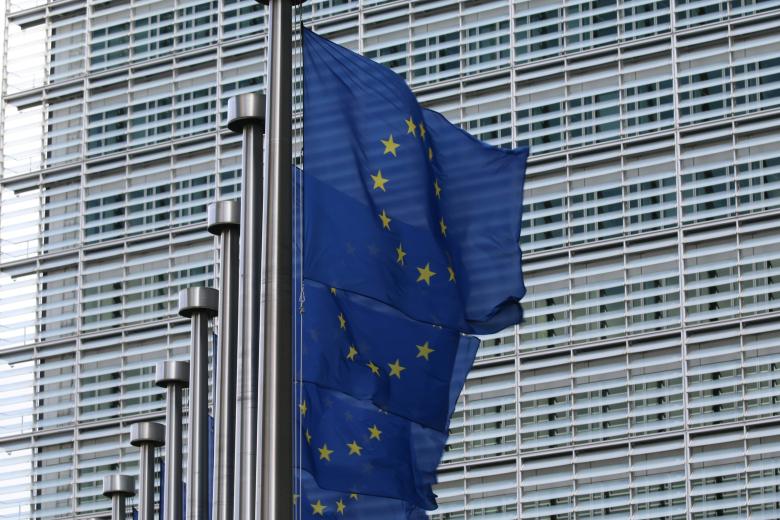Rules Under Fire: The Case for International Trade Law Today
On 17 April, many of us had the pleasure of attending an IGIR Expert Lecture by John Clarke, former Chief Agriculture Negotiator of the European Union and former Head of the EU Delegation to the World Trade Organization and the United Nations in Geneva. He is currently a fellow at the Maastricht University Institute for Globalisation and International Regulation (IGIR). During his talk, John offered valuable insights into the escalating trade war sparked by the sweeping tariffs recently introduced by US President Donald Trump.
Following the lecture, our Maastricht University (UM) emeritus professor approached my colleague, Denise Prévost, and me with a pointed question: “Do you still have work?” What he was getting at was whether it remains meaningful to teach or research international trade law at a time when the world’s leading trading power so openly disregards the rules - or, more fundamentally, whether international trade law still exists as a coherent and effective discipline.
Denise and I responded with conviction, defending the relevance and importance of a field to which we have both devoted much of our academic careers. We outlined several reasons why international trade law not only remains vital, but is perhaps more important now than ever. After this brief exchange, I felt compelled to share more broadly the rationale behind our position - and why today’s challenges to the global trading order strengthen, rather than weaken, the case for continuing to engage with, teach, and develop international trade law.
Relevance of rules
To begin with, violations of rules, even egregious ones, do not render them irrelevant. Russia’s invasion of Ukraine, for example, is a clear breach of international law, yet it has not diminished the significance or binding nature of the legal norms protecting state sovereignty and territorial integrity. Similarly, the imposition of tariffs by the US under President Trump does not invalidate the framework of international trade law. Rather, it highlights the urgent need to defend and reinforce it. Many states have responded to these disruptions not by walking away from the system, but by reaffirming their commitment to a rules-based international order, recognising that, without it, the global trade landscape risks devolving into one governed solely by power politics where might is right.
Continued engagement
Second, while the actions of a dominant power may have a destabilising effect, the majority of states continue to operate within the parameters of international trade law, especially in their bilateral and regional interactions. One can hardly fault states for adapting their stance towards a rule-breaker, yet their adherence to established norms in other contexts signals enduring support for the system. This ongoing engagement affirms the importance of continued scholarship, education, and dissemination of knowledge in the field.
New developments on old foundations
Third, many of the core principles found in WTO agreements, which form the foundation of much academic teaching and research, have been replicated and further developed in a wide range of preferential trade agreements. As multilateralism faces increasing challenges, these agreements are likely to only grow in number and significance. Understanding WTO law remains indispensable for understanding and analysing these evolving trade frameworks.
Fourth, a solid understanding of the current legal architecture is essential for crafting the reforms that today’s context may demand, whether through gradual evolution or more radical revolution.
Challenges ahead
As we are reminded in foundational international law courses, international law differs fundamentally from domestic legal systems: it lacks centralised enforcement mechanisms or hierarchical authority. Instead, it is built on the principles of state sovereignty, political equality, and mutual cooperation. States are both the architects and guardians of international law and it is they who must respond to breaches, whether by upholding existing rules or designing new legal instruments that reflect contemporary realities. The field of international trade law will undoubtedly require such renewal in the years ahead.
Rather than retreating from a system that, despite its various flaws, has supported decades of global economic development and relative peace, we should intensify our efforts to equip the next generation of scholars, legal practitioners, and policymakers with the tools to navigate and improve it. The challenges facing the system, whether temporary, such as the current US administration’s approach, or structural, such as the integration of trade law with climate action or security policy, demand informed, principled, and innovative responses. And these responses must be rooted in a firm understanding of the existing legal framework.
These are among the reasons why I remain committed to teaching and researching international trade law. I believe that through continued academic engagement, we contribute to the development of more resilient, inclusive, and forward-looking solutions to today’s global challenges.
Join the upcoming lecture
This belief is shared by Peter Van den Bossche, another UM emeritus professor and former appellate judge of the now-defunct WTO Appellate Body. On 27 May, Peter will share his insights with our Advanced International Trade Law students in his upcoming lecture entitled ‘Needed more than ever: the WTO and its rulebook.’ Feel free to attend.
-
The way to Geneva and INC-5.2 after the IACtHR Advisory Opinion on the Climate Emergency and Human Rights
How might the IACtHR Advisory Opinion on climate emergency and human rights reshape the Plastics Treaty negotiations?

-
Trading Softly? The EU’s Quiet Shift Toward Clean Trade and Investment Partnerships
For decades, multilateralism has been the guiding principle for regulating international trade relations between states. The European Union (EU) has long championed this approach, firmly believing that global cooperation - ideally through consensus among all countries - is the most effective way to...

-
AI-assisted consumer: Is the proposed European Artificial Intelligence Act ready to embrace ChatGPT?
ChatGPT’s rapid virality sparks both enthusiasm for using the product and concerns about consumer protection. Protecting consumers in the age of AI was also a central topic at the AI-Assisted consumer seminar, co-organized by MaRBLe, GLaw-Net, and IGIR.

